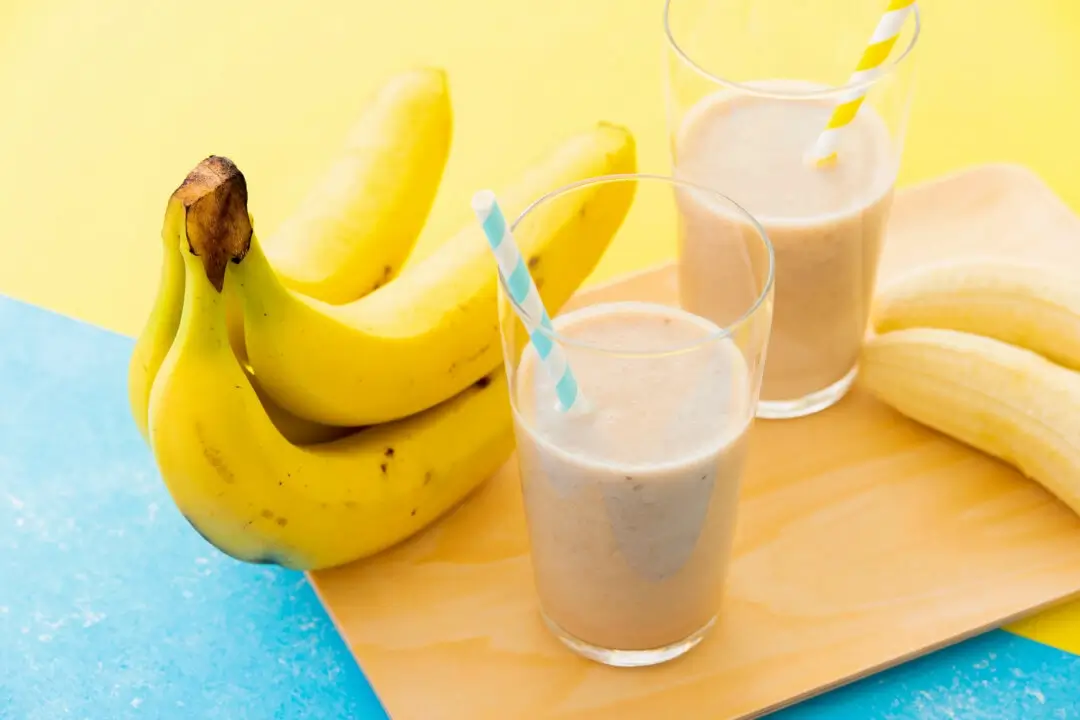By: George Citroner | The Epoch Times
Could your grocery list be a secret weapon against depression?
A recent study from South Korea suggests that everyday foods like milk, bananas, and even kimchi may be natural mood boosters. But some experts say the connection may not be as simple as it seems.
Everyday Foods That May Fight Depression Naturally
A study published in Nutrients investigated the association between specific single foods and depressive symptoms among young adults in South Korea using a cross-sectional survey, aiming to explore dietary alternatives to pharmaceutical treatments for depression.
Foods rich in bioactive components such as omega-3 fatty acids, B-complex vitamins, vitamin D, folate, and phytochemicals may help alleviate depressive symptoms. These nutrients potentially interact with stress hormones, pro-inflammatory cytokines, and neurotransmitters, according to the authors.
Researchers examined the eating habits of 1,000 young Korean adults using a dietary survey that included 112 common foods and dishes. Participants reported how often they ate certain foods in the past year, ranging from never to three or more times daily. They also indicated their typical serving size, from small to large. Researchers used a 20-question survey to measure participants’ depression symptoms from the past week.
The results linked the following foods to a lower risk of depression symptoms:
- Eggs: 45% lower risk.
- Milk & Bananas: 42% lower risk.
- Sweet Potatoes: 40% lower risk.
- Oranges: 38% lower risk.
- Mushrooms: 47% lower risk (in women only).
- Kimchi: 60% lower risk (in men only).
The study suggests these foods may contain bioactive compounds that could reduce symptoms of depression.
The team identified specific compounds potentially responsible for these positive effects. Hesperidin, found in oranges, showed powerful potential in fighting depression. However, further research is needed to confirm this connection and explore the potential use of these foods in depression treatments, the researchers wrote.
Correlation vs. Causation
It is important to distinguish between correlation and causation when discussing diet and depression, Dr. Timothy Sullivan, chair of psychiatry and behavioural sciences at Staten Island University Hospital, told The Epoch Times. While associations exist, establishing direct causal links has been challenging, and this study does not prove causation, he noted.
Current theory suggests diet affects mental health through changes in the gut microbiome. “Diet and gut health are variables which interact with other variables related to the individual’s constitution and habits, including their genetic risk for depression,” Dr. Sullivan said. Unless severe malnutrition or metabolic distress is involved, the evidence does not suggest dietary habits alone affect depression, he added.
Dr. Sullivan highlighted the following nutrient deficiencies linked to increased depression risk:
- Vitamin D, essential for mood regulation.
- Omega-3 Fatty Acids, crucial for brain health.
- Iron, necessary for neurotransmitter production.
- Magnesium, involved in neurotransmitter synthesis.
- Folate & Vitamin B12, essential for neurotransmitter production and brain function.
Other Foods Linked to Lower Depression
Previous research has identified certain foods that can influence mental health, including symptoms of depression. Reviewing several studies on the links between food and depression going back to the 1990s, the American Psychological Association has identified the following foods that have a positive effect on depression:
- Whole Foods: These contain more nutrients and less processed ingredients that may exacerbate depression.
- Foods Diverse In Vitamins & Minerals: These provide essential cofactors for brain function and neurotransmitter production.
- High-Fibre Foods: These support gut health, which is linked to better mental health.
- Japanese & Norwegian Diets: These diets feature whole foods and diverse nutrients that improve mental health.
- Diverse Vegetables: These provide a range of nutrients essential for brain health and mood regulation.
- Nuts: Nuts have been shown to reduce depression scores as part of a Mediterranean-style diet.
- Mediterranean Diet: Studies have associated adherence to this diet, which includes healthy fats like olive oil, fruits, vegetables, legumes, fish, and nuts, with reduced depression.
* * *
NEXT UP!
This Artificial Sweetener May Harm The Gut: Study
More people are turning to artificial sweeteners in lieu of sugar in an attempt to reduce their sugar intake to manage their weight and conditions like Type 2 diabetes. However, sugar alternatives can come with their own downsides, and some may cause more problems than they solve.
Neotame, a newer type of artificial sweetener used in things like soft drinks, cakes, and chewing gum can damage the intestine and cause health issues like irritable bowel syndrome (IBS) and sepsis, according to a new in vitro study published in the Frontiers in Nutrition.
What Is Neotame?
* * *
READ MORE: Researchers Have Developed A Way To “Decode” Depression
Read more on Depression & Anxiety: My “Stress” Was Actually High-Functioning Anxiety
Telegram: Stay connected and get the latest updates by following us on Telegram!
We’d love to hear from you! If you have a comment about this article or if you have a tip for a future Collective Spark Story please let us know below in the comment section.

